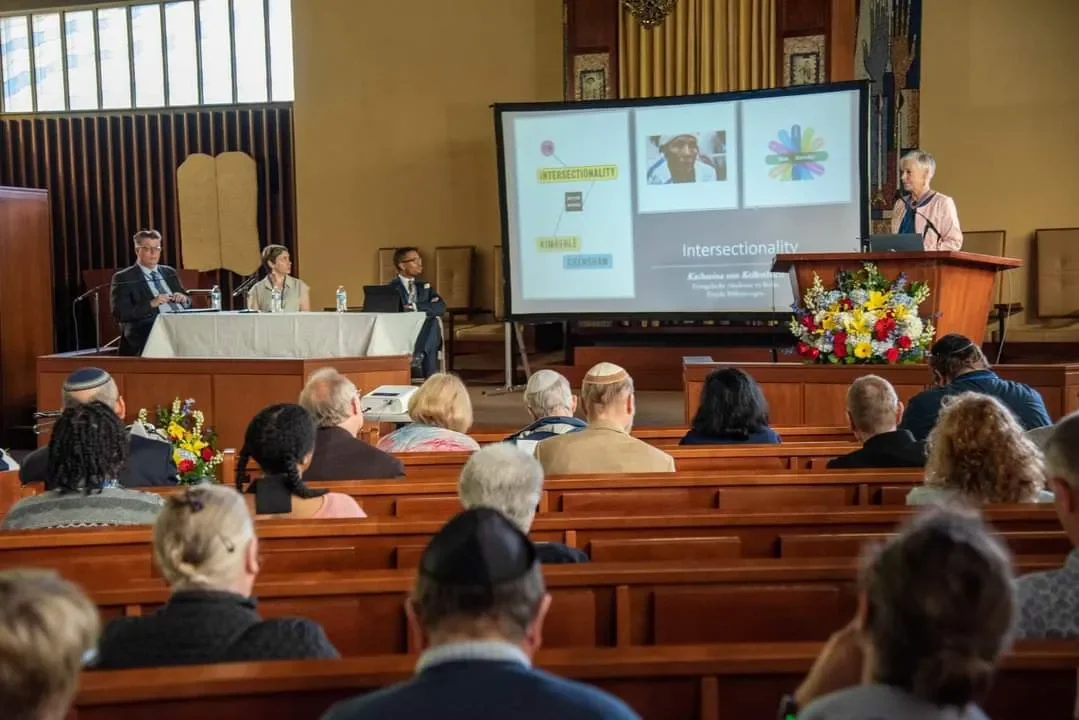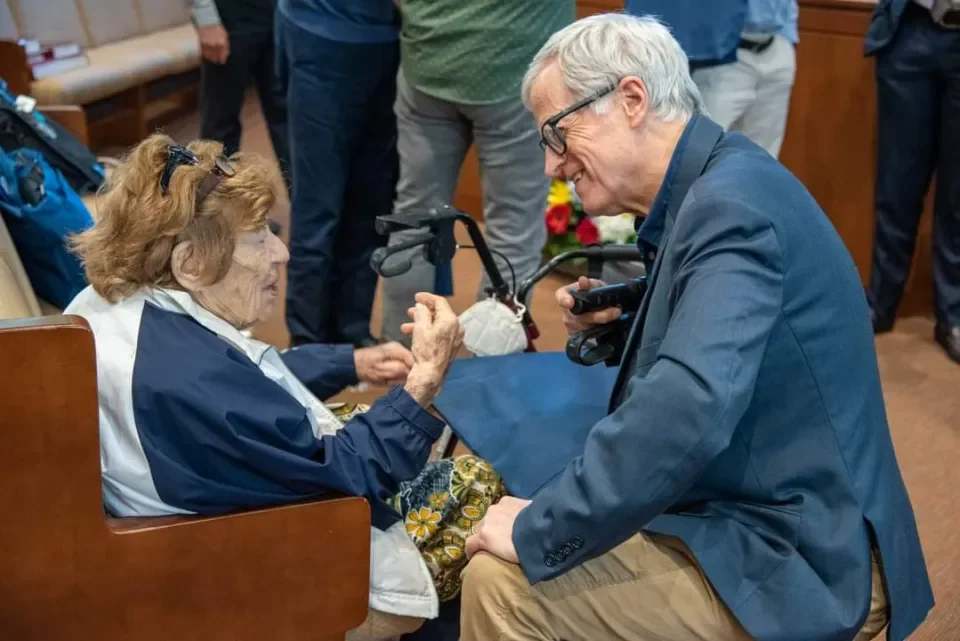

Freya Dasgupta attends ICCJ Conference in Boston on scholarship

Conference participants
Freya's Report
Funded by the Association of Friends and Sponsors of the Martin Buber House, I had the opportunity to attend the annual conference of the International Council of Christians and Jews (ICCJ) in Boston between June 18 and June 21 this year. Every year the association sponsors selected young people to participate in ICCJ’s activities as a part of its mission to invest in the future of the organisation. The topic of the conference this year was ‘Negotiating Multiple Identities: Implications for Interreligious Relations’.
The conference was held in educational institutions across Boston. The opening ceremony and reception took place on the academic campus of Simmons University during which the Seelisberg prize was awarded to Rev. Dr. Joseph Sievers for his scholarship and contribution towards improving Jewish-Christian relations. The plenary sessions and most of the workshops were held at the Hebrew College. One of the workshops took place in Boston University's Howard Thurman Centre for Common Ground along with a discussion on the interreligious legacy of Rev. Howard Thurman. The conference ended with a closing dinner in Boston College's Gasson Hall. The 130 conference participants from 22 countries were housed on the residential campus of Simmons University creating a sense of community just as the ICCJ organisers had hoped. As someone used to academic conferences, this felt more like a retreat.
The mornings began with denominational prayers for those interested. After breakfast at Simmons University's Bartol Hall, all participants were taken on buses to wherever the various conference activities were to be held for the day. The participants ate almost all meals together. There was a real openness for conversation and getting to know the other. One could sit next to a stranger for lunch but by the end of the meal they would no longer be a stranger. For me, interreligious interaction truly happens through lived experiences and this conference embodied that well. Michael Korn from the association that was funding me kept checking on me to make sure I had everything I needed and that I was comfortable. When I broke my phone on the stone-floor of the old Howard Thurman centre, Rebecca Cohen, whom I had only known at that point for two days, came to my rescue, taking me to mobile phone shops and even lending me her own phone so that I could use Google maps to find my way to a repair shop. As I took myself on a little pilgrimage of Boston mobile phone shops, I missed the tour of Jewish Boston organised as a part of the conference. I was eagerly looking forward to it. So, Phil Cunningham's brief lesson on Boston history with the aid of Google maps during a bus ride definitely cheered me up. And obviously, after the conference I made sure to visit the Israel Book Shop, a Jewish bookstore that has been in Boston since 1957.
The plenary sessions and workshops were fantastic and did not shy away from difficult conversations. The focus was mainly on intersectionality, not just that of our identities but also that of systems of oppression. Every speaker highlighted the interconnectedness of the structures of oppression and our struggles for liberation and the need to speak truth to power. There was a wide-range of workshop topics to pick from. I found the one on 'Decoding and Disrupting Antisemitic and Racist Imagery: Examples from German Religion Textbooks and Children's Bibles' particularly engaging. It emphasised the need to retell biblical stories through new images to change old narratives that have led to Christian anti-Judaism. I found the conversations that the workshop on 'The Forgotten Partner: Palestinian Christians in Jewish-Christian Dialogue' started absolutely pertinent and necessary. It brought out the existential nature of dialogue in contexts where minorities are denied legal rights and discussed the possibility of Christians as mediators in the Israel-Palestine conflict. I also loved reading and discussing biblical texts in the Beit Midrash at Hebrew College during the workshop on 'The Interaction of Different Identities in the Mirror of Biblical Texts'.
On the last evening of the conference, after the closing dinner, as I sat with six other participants, all thirty-somethings from different countries and diverse cultural backgrounds, at the pub opposite Simmons University's residential campus, laughing and sharing a pint, I realised what a fun and wonderfully enriching experience it had been. I hope I can be a part of ICCJ conferences in the future.
